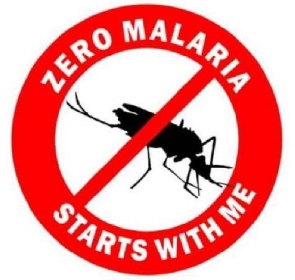The Upper East Regional Health Directorate of the Ghana Health Service (GHS) has exceeded its 90 per cent target for the Seasonal Malaria Chemoprevention (SMC) dosing exercise for 2022. The SMC, which is the administration of antimalarial medication made of Amodiaquine and Sulfadoxine Pyrimethamine (SP) to children from three to 59 months, is usually implemented in short rainfall patterns areas with high malaria transmission. The SMC implementation exercise first started in the Upper West Region in 2015 and after a successful implementation of two rounds, it was extended to the Upper East Region in 2016. In an interview with the Ghana News Agency (GNA) in Bolgatanga, Mr Sydney Ageyomah Abilba, the Regional Focal Person for Malaria, said with the support of the National Malaria Control Programme, there was a four-round successful dosing implementation exercise of the SMC in the Region. He said the entire four-round dosing exercise began on June 27 and ended on September 25, 2022, after a series of training and stakeholder engagements. He said the Region set to achieve a 90 per cent dosing implementation target, and apart from the first round, where it achieved 87.6 per cent, the Region exceeded the target in the rest of the three rounds. Mr Abilba said the second round of dosing exercise started after 28 days after the first round and explained that “It is to ensure that we are able to keep the antimalarial concentration in the blood of the children under five years. “The second round was implemented from the 25th to the 31st of July 2022, and the Region had an achievement of 96.8 per cent of a targeted population of 254,832 children below five years.” The Malaria Focal Person, who is also the Regional Medical Entomologist, said the third and fourth round doses were initiated between August 22 to September 25, where the Region achieved 100.4 and 102.0 per cent respectively. “So in all, we were able to implement the four rounds dosing implementation exercise and were able to achieve our targets except for round one. But most of the eligible children in the Region benefitted from the exercise,” he said. Asked why the Directorate could not meet its target in the first round, Mr Abilba said, “There were a lot of eligible children in the communities who were sick around that time, and we were not supposed to give the medication to sick children.” According to him, the usually high malaria admissions in Paediatric Units across the various health facilities in the rainy season had reduced this year, which was an indication that the purpose of the dosing exercise had been achieved. “We have seen a drastic reduction in malaria admissions because the essence of the SMC medication is preventive. Once children are fully dosed with the medication, most of them don’t come down with malaria again. “So there has been a lot of reduction in severe malaria cases, and over the years, we have also not recorded malaria-related deaths in children less than five years,” the Malaria Focal Person said.













